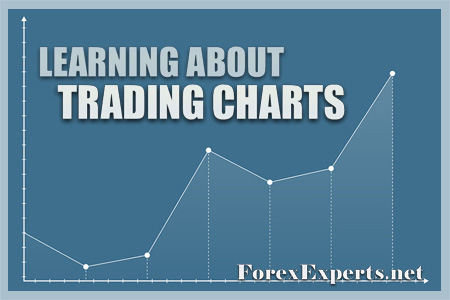Alternative Forex Charting
Line-Break and 3-Line Break Charts
A Line-Break chart is a Japanese chart style similar to Renko or Point-and-Figure (P&F) charts. This type of chart ignores time and draws lines only when the price moves by a significant amount. Line-Break charts are particularly useful for identifying and confirming trend reversals.
📈 Introduction to Line Break Charts and the 3-Line Chart
Line Break Charts completely ignore time intervals and focus solely on price action and the current price trend. They can be applied across all timeframes and financial asset classes. The user defines the number of line values, typically 2 or 3.
The four (4) types of lines are:
-
Uptrend Lines (formed when the closing price exceeds the previous line's high)
-
Downtrend Lines (formed when the closing price falls below the previous line's low)
-
Projected Uptrend Lines (an upward projection before actual closing)
-
Projected Downtrend Lines (a downward projection before actual closing)
The Line Break Chart draws a new line only when the price forms a new high or low compared to the previous high or low. If the price does not exceed these thresholds, no new line is drawn. Each line is based solely on the closing price, not on the high or low of the period.
 Renko Price Chart
Renko Price Chart
The Renko Chart is a type of chart that plots only specific pip movements, eliminating the impact of time.
📈 What is a Renko Chart?
Renko comes from the Japanese word "Renga," which means brick. This type of chart is valuable for swing trend traders and long-term trend traders but less suited for typical day traders. The Renko Chart plots only selected pip movements by eliminating the impact of time.
Renko vs Range Bars:
Both methods filter out noise and disregard time, but Range Bars display OHLC data for each range and reverse direction immediately when price moves the set range size. In contrast, Renko bricks build up directionally and require a price movement twice the brick size to trigger a reversal.
How Renko Bricks are Formed
- Brick Size: You set a fixed price increment (such as 10 pips, $0.50, or 5 points) which represents the minimum movement required to generate a new brick.
- Upward Brick (Bullish): Created when the price climbs at least one brick size above the top of the previous brick. These bricks are usually shown in white or green.
- Downward Brick (Bearish): Created when the price drops at least one brick size below the bottom of the previous brick. These bricks are commonly colored black or red.
- Key Rule: A new brick only appears after the price has moved the full brick size. Partial price changes do not produce partial bricks.
- Reversal Requirement: For the chart to reverse direction (for example, switching from upward to downward bricks), the price must move twice the brick size in the opposite direction (e.g., a 20-pip decline if the brick size is 10 pips).
Median or Mean Renko Charts
A Median Renko chart is similar to a regular Renko chart, except that each bar’s open is positioned at the midpoint of the previous bar rather than at its high or low.
 Heikin-Ashi Chart
Heikin-Ashi Chart
The Heikin-Ashi chart is a candlestick-style chart with unique characteristics for Forex trading. It uses a distinct method to plot each bar, as shown in the EURUSD chart below.
📈 Heikin-Ashi Chart Advantages
Here are some advantages of trading with Heikin-Ashi charts:
(1) Heikin-Ashi charts make candlesticks and trends easy to identify.
(2) Heikin-Ashi candlesticks appear smoother and can filter out misleading market noise.
(3) Heikin-Ashi candlesticks can foreshadow trend reversals and quickly reveal classic patterns.
(4) Traders can use Heikin-Ashi charts to identify trendlines, support and resistance, retracements, and more.
(5) Momentum oscillators and volume indicators can be combined with Heikin-Ashi charts, just like with any other chart type.
(6) There are no price gaps on a Heikin-Ashi chart.

🛠 Heikin-Ashi Bars Formula
This is how the Heikin-Ashi chart plots its bars:
◙ Closing Price = Current Bar ( Open + High + Low + Close ) / 4
◙ Opening Price = Previous Bar [ (Open Bar) + Close) ] / 2
◙ High Price = Max Current Bar ( High, Open, Close )
◙ Low Price = Min Current Bar ( Low, Open, Close )
 Range Charts
Range Charts
A Range Chart, also known as a Range Bar, is a type of chart that is entirely based on a specified range of pip movement.
📈 What is a Range Chart?
A Range Chart is a type of chart based on price movement, where each bar or candle is created only after the price shifts by a fixed amount (known as the range), regardless of the passage of time. Its purpose is to eliminate small price changes, emphasize market volatility, and offer more distinct indications of trends and breakout patterns by concentrating solely on meaningful price shifts. This charting method is conceptually distinct from the SPC R-Chart, which is utilized in quality control processes.
- Range Charts were developed in the mid-1990s by Vicente M. Nicolellis, a Brazilian trader.
🎯 Range Chart Benefits
✅ Filter Noise: Removes the small, insignificant price fluctuations that often clutter time-based charts during consolidation phases. Bars are formed only by notable price changes.
✅ Highlight Volatility: Clearly displays volatility levels. When bars are tightly clustered, it indicates high volatility (price quickly covers the range). Conversely, widely spaced bars suggest low volatility (price takes longer to reach the range size).
✅ Clearer Trends & Breakouts: Helps smooth out trends and makes breakout points from consolidation zones more visible since each bar corresponds to a significant price movement.
✅ Consistent Bar Size: Every bar reflects an equal amount of price movement, simplifying visual comparison across the chart.
Volume Representation: When volume is shown, it reflects the trading volume accumulated during the creation of each individual range bar.
🛠 Range Chart Features
-
Range charts eliminate the time factor.
-
A range chart bar always closes at a high or a low.
-
Each range chart bar has the same price increment.
-
Range charts can effectively eliminate market noise.
-
They plot more bars during active market hours and fewer bars during quieter periods.
-
Range charts become more active during high-volatility days and less active during low-volatility days.
-
They are ideal for analyzing trending markets.




